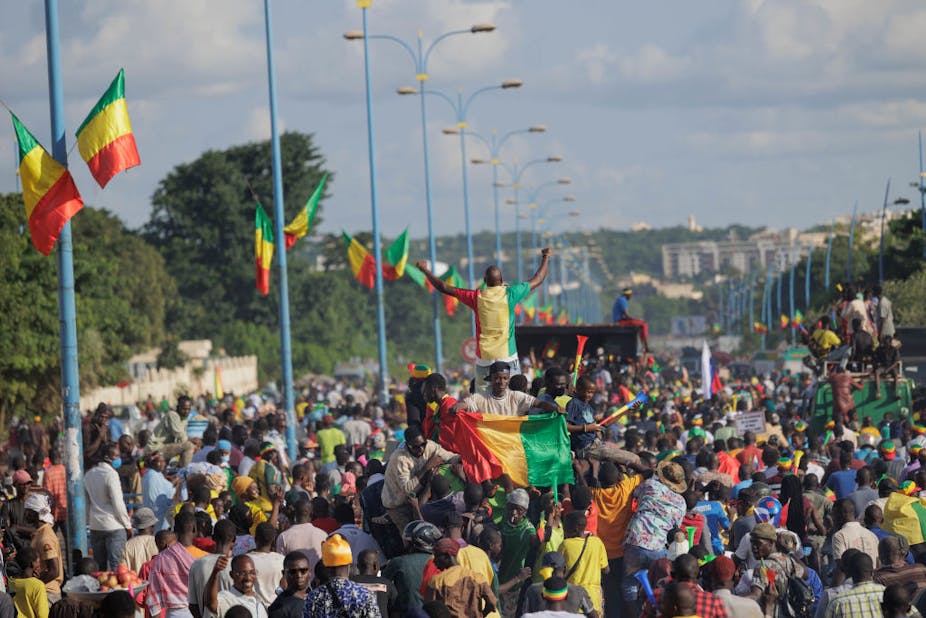The UN Security Council voted on 30 June 2023 to end its peacekeeping mission in Mali, Minusma, after Mali officially requested its complete withdrawal. Over 11,000 military personnel from 53 countries are expected to leave the country by 31 December 2023.
Minusma was first deployed in Mali in April 2013 to support the country’s political process and help restore peace and stability. In mid-2012, the north of the country was under the control of terrorist groups.
Mali’s recent request for the withdrawal of UN peacekeeping troops comes as no surprise.
After a coup in 2020 and another in 2021, the relationship between Malian authorities and Minusma deteriorated. The UN published a report accusing Malian troops and their allies of massacring at least 500 civilians in 2022. It also accused the Malian government of interfering with operations.
These events prompted some countries to begin withdrawing their soldiers from the peacekeeping mission. In November 2022, Côte d'Ivoire informed the UN that its 900 soldiers would leave the mission. Three days later, the UK said it would also withdraw its troops.
Read more: UN troops to withdraw from Mali: what will change in terms of security
I’m a political scientist with a research focus on security issues in the Sahel, which includes Mali. In my view, for Mali to make a peaceful transition to democracy, two key elements are needed.
First, new terrorist threats in the Sahel require the development of new instruments and approaches to warfare, including a joint fight against Islamist terrorist insurgents. No single country in the region has the necessary strength to lead the fight against terrorism alone. Mali must coordinate military efforts with its neighbours: Algeria, Burkina Faso, Guinea, Côte d'Ivoire, Mauritania, Niger and Senegal.
Second, Mali must accompany the military aspect of the fight against terrorism with development initiatives to prevent radicalisation. Without these measures, the country and its citizens could face increased instability.
What’s needed
On 3 July 2023, Malian authorities and a Minusma delegation agreed on a withdrawal plan. This will transfer tasks, logistics, security and strategic communication to Bamako by December.
Mali has had measures in place for the withdrawal of UN troops since a new government took over after the 2020 coup. The National Transitional Council approved the creation of a war school in September 2021 to strengthen the national security apparatus and train future army cadres.
The intention was to replace foreign troops with local ones in the event of a withdrawal. The first cohort has already completed its training. The second class is nearing graduation.
While the UN’s withdrawal will create a security vacuum, increasing Mali’s vulnerability to security and terrorism-related challenges, graduates of the war school could help fill this void.
Read more: France has started withdrawing its troops from Mali: what is it leaving behind?
But for this to work, Malian authorities must ensure local soldiers are capable of occupying areas previously under the control of peacekeepers. Additionally, the government will need to provide employment opportunities for the more than 800 civilians working with Minusma, and create new economic activities to fill the gaps left by its departure. This will minimise any additional negative impact on Mali’s already fragile unemployment rate. Bamako has said it’s capable of securing its 23 million citizens, but has yet to detail how it plans to do so.
The government also needs to implement the recommendations of a national conference on the refoundation of the state. This includes organising credible, fair and transparent elections. A transition agreement adopted by parliament in 2022 gave the transitional government two years to hand power back to civilians.
However, progress on this has already been put to question. Interim president Assimi Goïta recently adopted a new constitution that enhances his powers.
The major concern now is whether the military government will honour the transition period and organise elections that would restore power to a democratically elected president by 2024. Delivering this requires government measures that restore security throughout the country, foster national reconciliation and promote good governance.
Why this matters
The withdrawal of UN troops from Mali could have negative consequences on the country’s security situation and economic growth. It could also complicate dialogue and negotiation efforts with ex-rebels.
A loss of support and commitment from the international community could lead to a reduction in financial aid and political support in the fight against insecurity. This would have a direct impact on the country’s – and Sahel region’s – stability.
Read more: What makes peace talks successful? The 4 factors that matter
The path of constructive dialogue remains an essential condition for a peaceful political transition and the construction of “Mali Koura”, or a new Mali.
Mali needs to reconstruct its society. Its people are thirsty for true democracy and development. The transitional authorities should ensure an end to bad governance, political mismanagement, corruption and nepotism.


